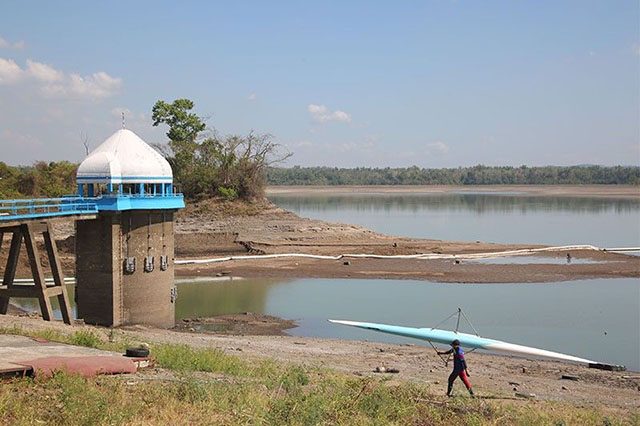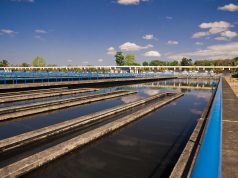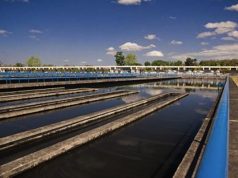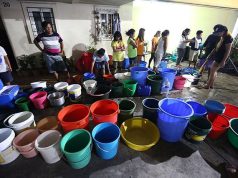Experts from the Metropolitan Waterworks and Sewerage System and the weather bureau are not convinced by Manila Water’s explanation that its supply issues are due to El Niño.
Manila Water, supplier for the east zone of the metropolis, posted water interruption schedules on its social accounts of barangays that will experience low pressure to no water throughout the summer.
It was part of the contingency plan to cope with the sharp decrease of water level in La Mesa Dam, where the water concessionaire gets its supply.
If this were true, the other neighboring dams should have experienced a decline as well, according to an official from the Philippine Atmospheric Geophysical, and Astronomical Services.
READ: MWSS Chief Regulator: Growing population is reason for water shortage
“Kung El Niño ito, dapat ‘yung ibang dams din nagbabaan, eh hindi naman,” said Rusy Abastillas, a weather forecaster at PAGASA.
The three main sources of water in Metro Manila are Angat Dam, La Mesa Dam and Ipo Dam.
DAM UPDATE as of 6 AM, 12 March 2019 pic.twitter.com/npJWUcDrfr
— PAGASA-HMD (@PAGASAFFWS) March 11, 2019
As of March 12, data from PAGASA showed La Mesa Dam below its critical level at 68.93 meters, which is the lowest in 12 years.
Angat Dam is at 200.59 meters, a little below the normal water level. Ipo Dam sits at a normal 101-meter level.
Despite this situation, MWSS Administrator Reynaldo Velasco assured the public that there is enough reserve in Angat Dam to last for the whole dry season.
“The level of water in Angat (Dam) is still high. 96 percent of our water is coming from Angat. We still believe that the water from Angat is still enough to provide water for Metro Manila,” Velasco said.
Maynilad, the supplier for the west zone of Metro Manila, also said that it’s not experiencing any operational problems given that Angat’s reservoir is sufficient for its areas of coverage.
“Maayos pa po ang level ng tubig sa Angat dam at nakikita naman po ng (National Water Resources Board) na ‘yung alokasyon namin ay hindi pa dapat mabawasan,” said Jennifer Rufo of Maynilad.
Velasco also said that Manila Water shouldn’t be drawing water from La Mesa Dam in the first place.
“I think Manila has always been drawing some water from La Mesa Dam. I told them that’s supposed to be reserved, but they have been drawing water. That’s why it’s now on its low,” he said.
He then perceived possible leaks in Manila Water’s piping system which prevents it from maximizing its allocated water supply from Angat Dam.
For its part, Manila Water tells its consumers that it is currently looking for other sources of water to tap.
“We are currently developing a treatment plant that will draw water from Laguna Lake, this will service parts of Rizal and some of the supply that we will get there would also be brought to the central distribution system, meaning to the Metro Manila customers,” said Ditti Galang, communications manager of Manila Water.
How the system works
Based on MWSS website, Angat Dam is the main reservoir where Maynilad and Manila Water draws water from.
From Angat Dam, the water goes to Ipo Dam and then processed by the La Mesa and Balara Treatment Plants, which eventually makes the water potable and clean.
Velasco also explained that the amount of water in Angat Dam is divided into two—1.6 million liters per day for Manila Water while 2.4 million liters per day for Maynilad.
Manila Water, however, claimed that demand among the residents of the east zone breached the quantity appropriated for them since 2018.
In January 2019, La Mesa dam only recorded a water level of 74 meters which is below its 80-meter normal mark.









